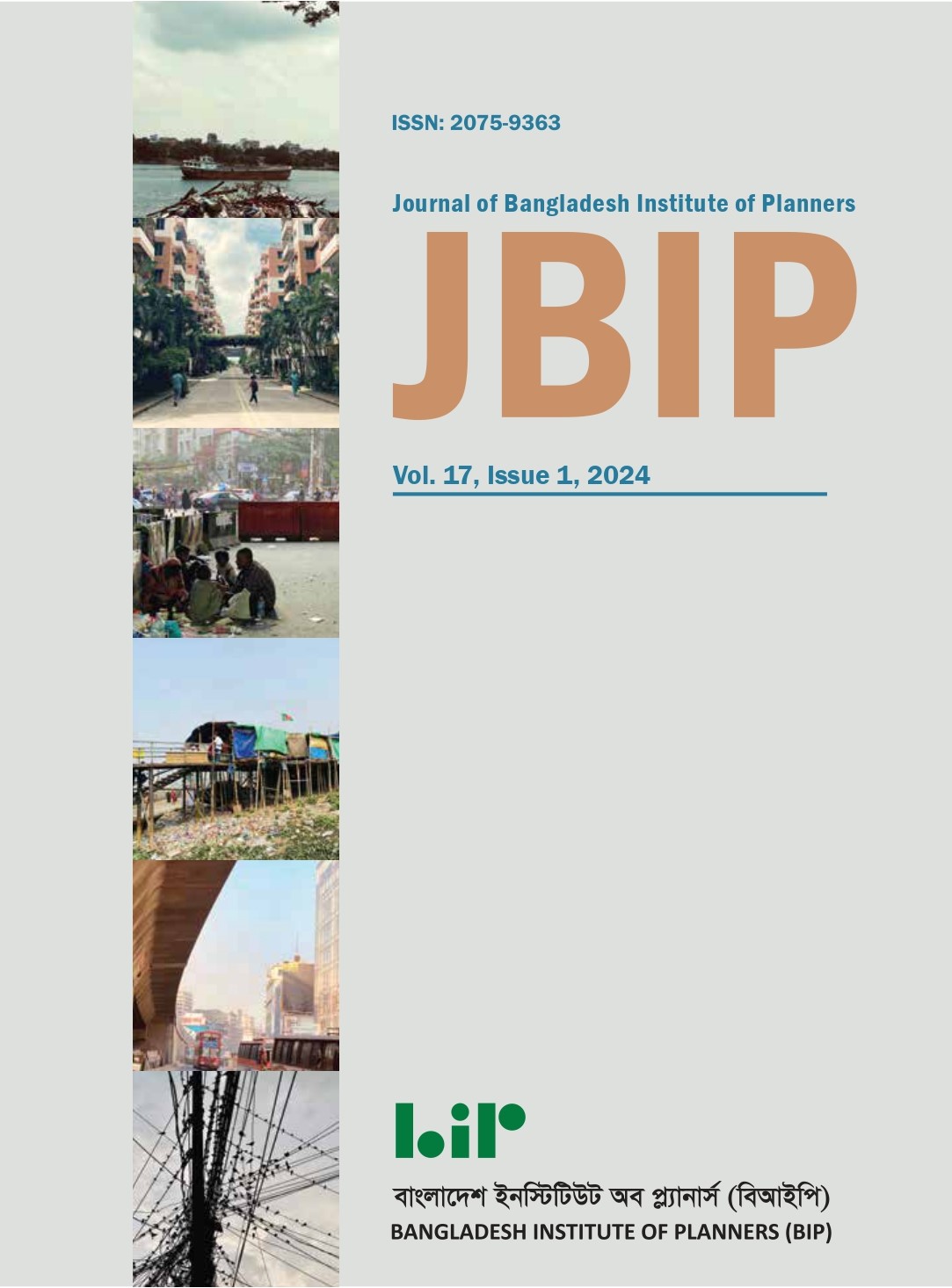Public investments in large urban projects: Reassessment from Land Value Capture perspective in Dhaka, the capital city of Bangladesh
DOI:
https://doi.org/10.3329/jbip.v17i1.79875Keywords:
Land Value Capture, Public investment, Large Scale Urban Projects, Sites and Services SchemeAbstract
From time immemorial, cities have been considered ‘engines of growth’. These growth dynamics certainly have impacts on the well-being of the urban economy as well as city dwellers. This evolved new thoughts for cost recovery of government spending from land value capture perspective which is particularly crucial for cities in developing economies of the Global South. The rationale behind the appreciation of value increment by the government is that, the benefit of collective effort must be distributed for the common good with a focus on the disadvantaged group. Different land value capture tools are also important sources of financing on the ground that value increases due to government intervention. This paper aims to appraise the improvement schemes as a public investment for housing supply and infrastructure development in Dhaka City, Bangladesh. To conduct the research, a single embedded case study was adopted using office records of GIS and Oracle databases. In addition, semi-structured interviews of key professionals and experts helped to assess in-depth policy assessment and triangulation of information. A separate real estate market survey could have increased the credibility of the data, absence of which is a limitation of the study. However, the study result reveals a significant increase in land value over the years which the government failed to capture. Rather there are indications that the government’s strategy to make ‘no profit, no losses’ policy ended up leaving major share of benefits to private individuals. Beneficiary segments apprehended profits from land value increments, which could be invested in other public projects if captured by the government. Consequently, the research findings will facilitate prior and post-assessment of similar public investment from a land value capture (LVC) perspective and shape future policy development for setting priorities.
JBIP, Vol. 17, 2024, pp. 1-10
Downloads
268
396




